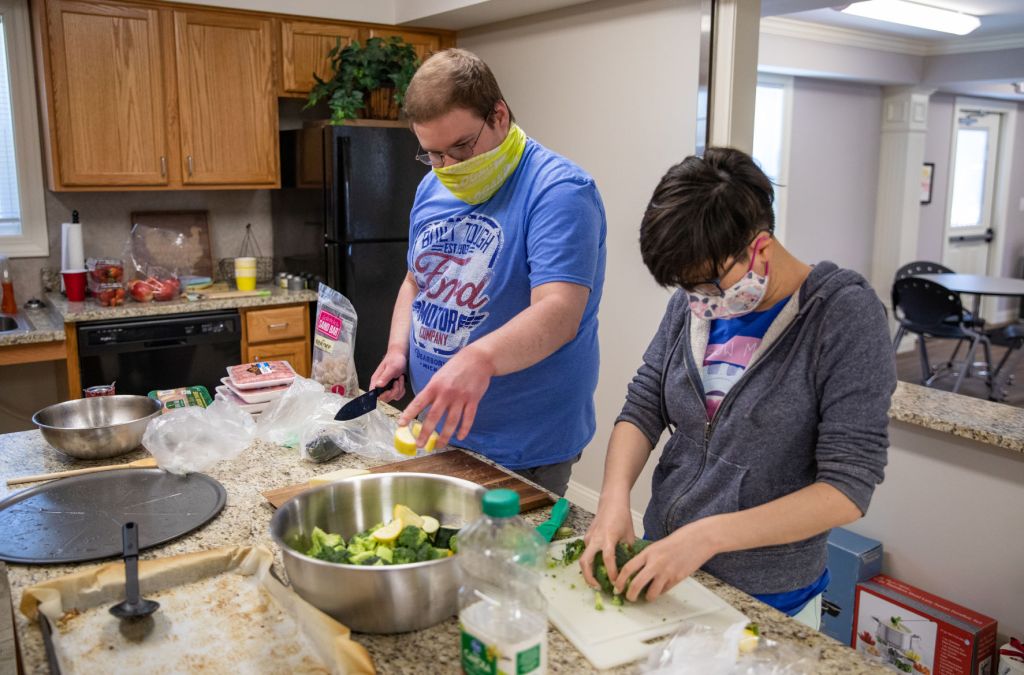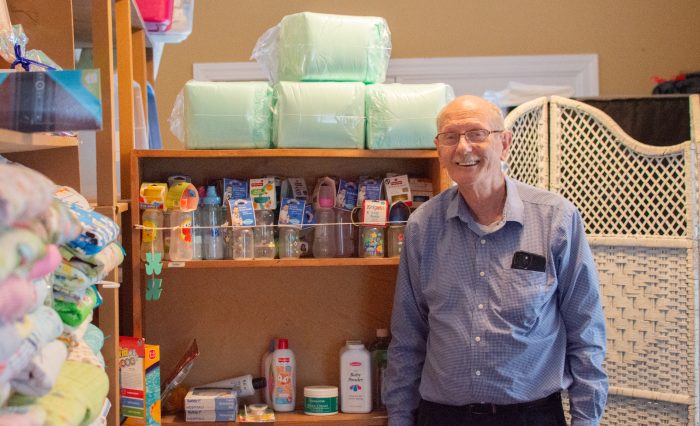For young adults with autism, LifeWorks at WKU offers community
Published 12:15 am Sunday, April 4, 2021

- LifeWorks at WKU participants Will Sutkowski and Joy McAlpine chop vegetables for a fondue during a cooking class at LifeWorks at WKU, a new program at Western Kentucky University that supports individuals with autism spectrum disorder and other learning differences, at the facility on Adams Street on Tuesday, March 30, 2021. Through its two-year Transition Academy program, LifeWorks offers young adult students with autism a 32-course curriculum designed to help them with finding a job and developing the skills they need to support themselves alongside a community of peers going through the same experience. (Grace Ramey/photo@bgdailynews.com)
Back when he was attending Western Kentucky University, Andy Arnold had a home on the Hill. He made the Dean’s List, the President’s List, aced an independent study course and was president of the Religious Studies Club and the university’s Quiz Bowl team.
But after he graduated in 2019, there weren’t a lot of ready-made paths for someone on the autism spectrum.
Trending
That changed when he was invited to join LifeWorks at WKU.
“It’s a place that’s truly mine, and that’s a very new and interesting feeling for me,” Arnold said of the two-year LifeWorks Transition Academy, which is offering housing to young autistic adults who crave independence and employment.
Based in a renovated apartment complex behind the Suzanne Vitale Clinical Education Complex at WKU, LifeWorks is the only program of its kind in Kentucky.
Through LifeWorks, Arnold has an apartment of his own, where the 27-year-old enjoys cooking and tidying up. Asked what he personally wants to get out of the program, Arnold said he wants a job, a shot at living on his own and “standing up on my own two feet.”
“I think that there’s a lot of misconceptions about autism,” Arnold said. “I think there’s a social norm that autistic people are expected to just conform to the whims of our normal society. And after people turn 18, they’re often at the mercy of their family or the system at large. And there’s very little support system for autistic adults.”
About 1 in 54 children are diagnosed with autism, though currently 85% of college graduates with autism are unemployed or underemployed, according to national data.
Trending
Through its Transition Academy, LifeWorks is offering a 32-course curriculum designed with young adults with autism in mind. They get help with finding a job, the skills they need to support themselves and a community of peers going through the same experience.
“The focus of the Transition Academy is that they come for two years and they receive instruction, but they also have experience in business here, whether it’s an internship or a job, preferably the goal is employment,” said Mary Lloyd Moore, who helms the Clinical Education Complex as its executive director.
“So they’ll be able to work at whatever in whatever job capacity they want. They’ll be able to live in their apartments and in the community. They’ll be able to engage in community activities and give back to the community through the volunteer aspects,” Moore said.
Post-pandemic, LifeWorks at WKU is looking to grow. It has enough capacity for 28 residents.
“We realize that it’s going to take us a year or two or three to reach that capacity, but we’re confident that we will,” Moore said. “We’re hoping to be a model program for other communities because we know that what’s going on here really is going to be an asset for the individuals and a reassurance for families that their loved ones are on the path that they choose.”






